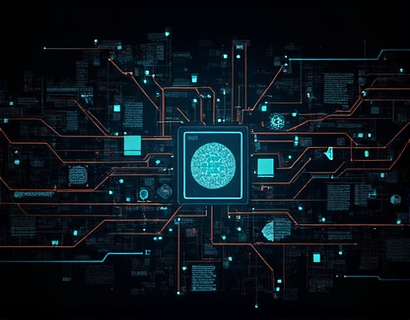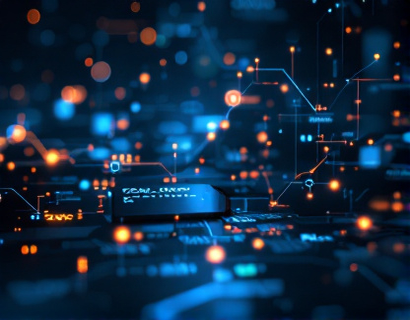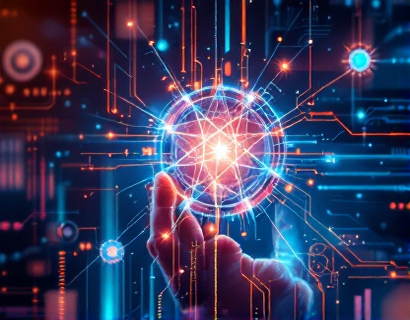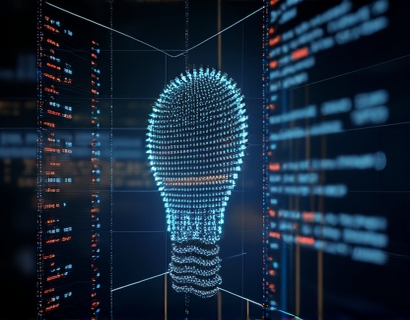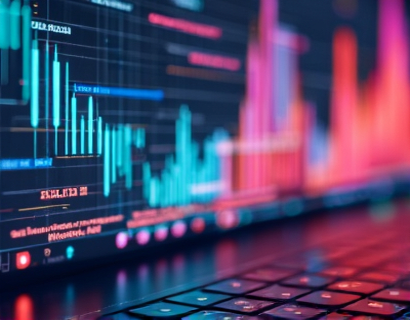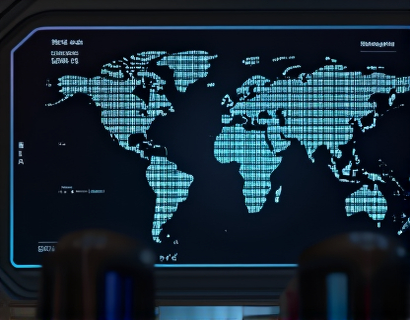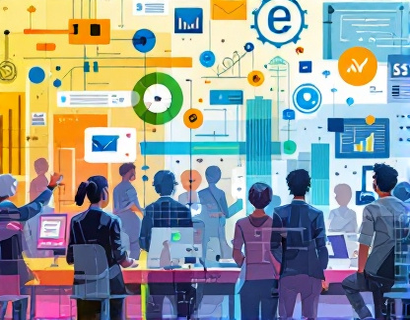Unlocking Enhanced Productivity in the Digital Age: The Synergy of AI and Crypto
The digital age has ushered in a new era of technological advancements, where artificial intelligence (AI) and cryptocurrency are at the forefront of transforming the way we work and interact with digital tools. This article delves into the profound impact these technologies have on enhancing productivity, particularly for tech innovators and early adopters. By exploring the intersection of AI and cryptocurrency, we can uncover how these advanced technologies are not only revolutionizing workflows but also opening up new possibilities for efficiency and innovation.
The integration of AI into various sectors has been nothing short of revolutionary. From automating mundane tasks to providing insights through data analysis, AI has become an indispensable tool for businesses and individuals alike. In the context of digital productivity, AI offers solutions that can adapt to user needs, learn from patterns, and perform tasks that traditionally required human intervention. This capability significantly reduces the time and effort needed to complete daily tasks, allowing users to focus on more strategic and creative aspects of their work.
Cryptocurrency, on the other hand, has introduced a new paradigm in digital transactions and value exchange. Beyond its role as a digital currency, cryptocurrency technologies such as blockchain provide secure, transparent, and decentralized systems that can enhance trust and efficiency in various processes. When combined with AI, the potential for innovation is vast, as these technologies can complement each other to create more robust and intelligent systems.
AI in Task Automation and Efficiency
One of the most immediate benefits of AI in the digital workplace is task automation. AI-driven tools can handle repetitive and time-consuming tasks, such as data entry, scheduling, and report generation. For instance, AI-powered virtual assistants can manage calendars, send reminders, and even draft emails based on predefined templates. These tools learn from user behavior and preferences, becoming more efficient over time and reducing the need for manual intervention.
Moreover, AI can optimize workflows by identifying bottlenecks and suggesting improvements. Machine learning algorithms analyze vast amounts of data to detect patterns and anomalies, providing insights that can lead to more efficient processes. For example, in project management, AI can predict project timelines and resource allocation based on historical data, helping teams stay on track and meet deadlines more reliably.
Enhanced Decision-Making with AI
AI's ability to process and analyze large datasets makes it an invaluable tool for decision-making. Businesses can leverage AI to gain actionable insights from complex data, enabling more informed and strategic decisions. Predictive analytics, a subset of AI, uses historical data to forecast future trends, allowing organizations to anticipate market changes and customer behaviors. This proactive approach can give companies a competitive edge, as they can adapt quickly to evolving conditions.
In the realm of finance, AI-driven algorithms can analyze market data in real-time, identifying opportunities and risks with greater accuracy than traditional methods. This capability is particularly useful for traders and investors who rely on timely and precise information to make decisions. By automating data analysis and providing real-time insights, AI helps users make better-informed choices, thereby enhancing overall productivity.
Cryptocurrency and Decentralized Systems
Cryptocurrency technologies, particularly blockchain, offer a decentralized and secure way to conduct transactions and manage data. The transparency and immutability of blockchain ensure that all transactions are recorded and verifiable, reducing the risk of fraud and errors. This level of trust is crucial in digital interactions, where security and reliability are paramount.
Smart contracts, self-executing contracts with the terms directly written into code, are another significant application of blockchain. These contracts automatically enforce and execute agreements when predefined conditions are met, eliminating the need for intermediaries. This not only speeds up processes but also reduces costs and administrative overhead. For businesses, this means more streamlined operations and faster transaction times, contributing to increased productivity.
Combining AI and Crypto for Synergistic Benefits
The true power of AI and cryptocurrency lies in their synergy. When these technologies are combined, they can create systems that are not only more efficient but also more secure and transparent. For example, AI can be used to enhance the security of blockchain networks by detecting and mitigating potential threats in real-time. Conversely, the decentralized nature of blockchain can provide a robust infrastructure for AI applications, ensuring data integrity and availability.
Decentralized finance (DeFi) platforms are a prime example of this synergy. These platforms use blockchain to offer financial services such as lending, borrowing, and trading without traditional financial intermediaries. AI can optimize these services by analyzing market conditions, predicting price movements, and automating trading strategies. This combination results in more efficient and accessible financial tools, benefiting users by providing greater control and flexibility.
Case Studies and Real-World Applications
Several industries have already begun to leverage the combined power of AI and cryptocurrency to enhance productivity. In the supply chain sector, companies are using blockchain to track the movement of goods in real-time, ensuring transparency and reducing delays. AI algorithms can analyze this data to optimize logistics, predict demand, and manage inventory more effectively. This results in a more agile and responsive supply chain, reducing costs and improving service levels.
In the healthcare industry, AI and blockchain are being used to secure and manage patient data. Blockchain ensures that patient records are tamper-proof and accessible only to authorized personnel, while AI can analyze this data to provide personalized treatment recommendations and predict patient outcomes. This integration not only enhances patient care but also streamlines administrative processes, freeing up healthcare professionals to focus on patient interaction.
Challenges and Considerations
While the potential benefits of AI and cryptocurrency are significant, there are also challenges and considerations that need to be addressed. One of the primary concerns is the complexity of these technologies, which can be daunting for users who are not tech-savvy. Education and user-friendly interfaces are essential to ensure widespread adoption and effective utilization.
Another challenge is the regulatory landscape, which is still evolving in many regions. The intersection of AI and cryptocurrency raises questions about data privacy, security, and compliance. Organizations must navigate these regulations carefully to avoid legal issues and build trust with users. Transparency and ethical practices are crucial in maintaining user confidence in these technologies.
Future Prospects
Looking ahead, the integration of AI and cryptocurrency is poised to drive further innovation and productivity gains. As these technologies continue to mature, we can expect more sophisticated applications and broader adoption across various industries. The development of more advanced AI models, combined with the scalability and security of blockchain, will open up new possibilities for smart cities, autonomous systems, and beyond.
Moreover, the rise of Web 3.0, a decentralized internet powered by blockchain, will create a more user-centric and secure digital environment. AI will play a pivotal role in this ecosystem, enhancing user experiences and enabling seamless interactions. The future holds the promise of a digital landscape where productivity is not just improved but transformed, thanks to the synergistic power of AI and cryptocurrency.
In conclusion, the combination of AI and cryptocurrency represents a significant leap forward in digital productivity. By automating tasks, enhancing decision-making, and providing secure and decentralized systems, these technologies are reshaping the way we work and interact with digital tools. For tech innovators and early adopters, embracing these advancements can lead to unprecedented levels of efficiency and innovation, paving the way for a more productive and connected future.










